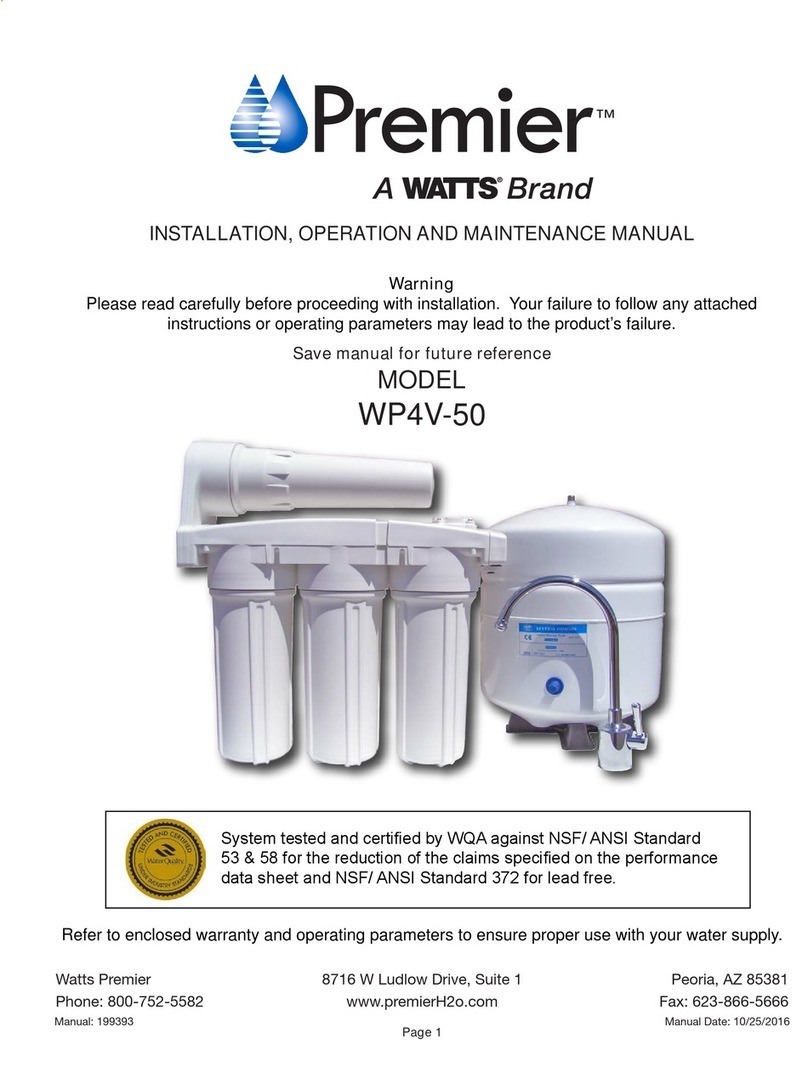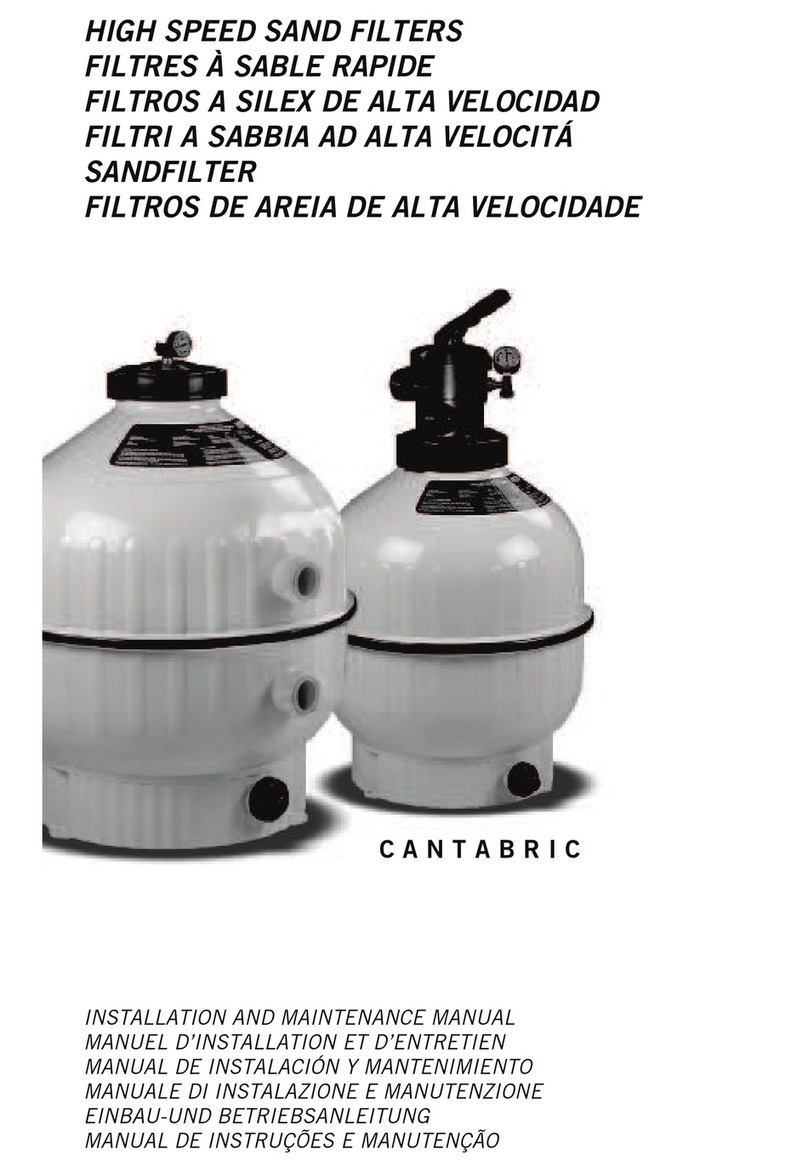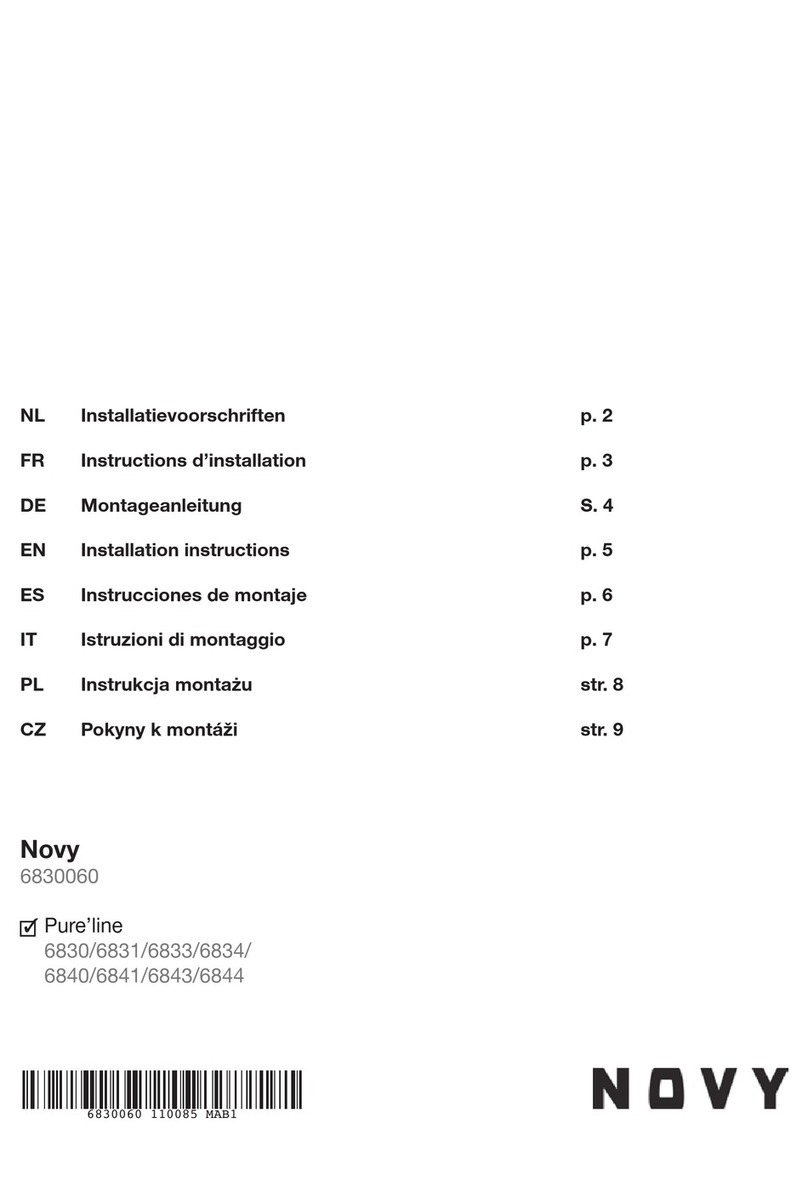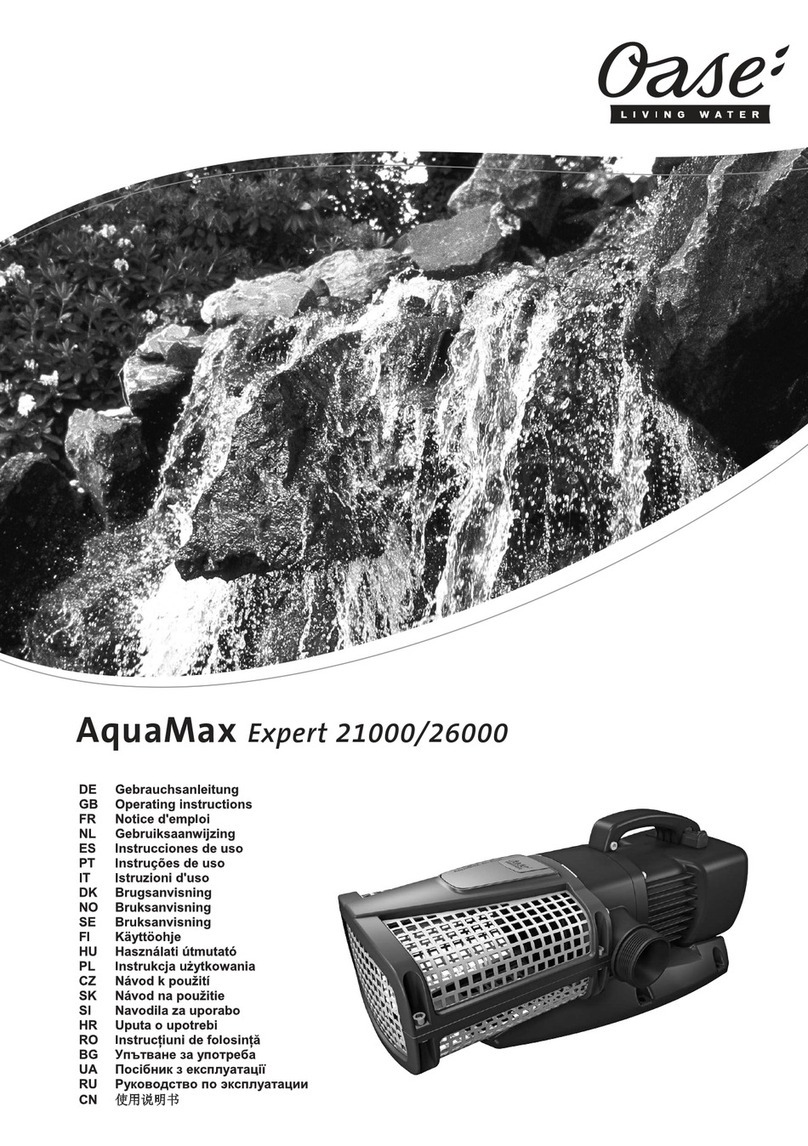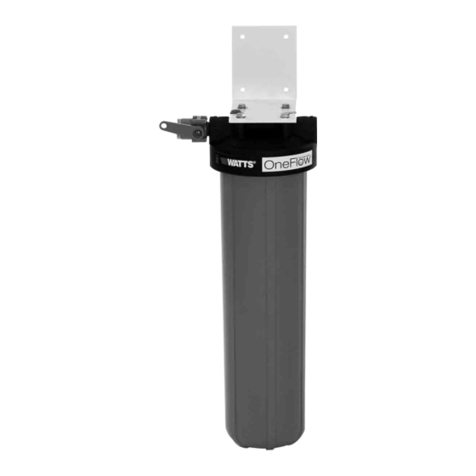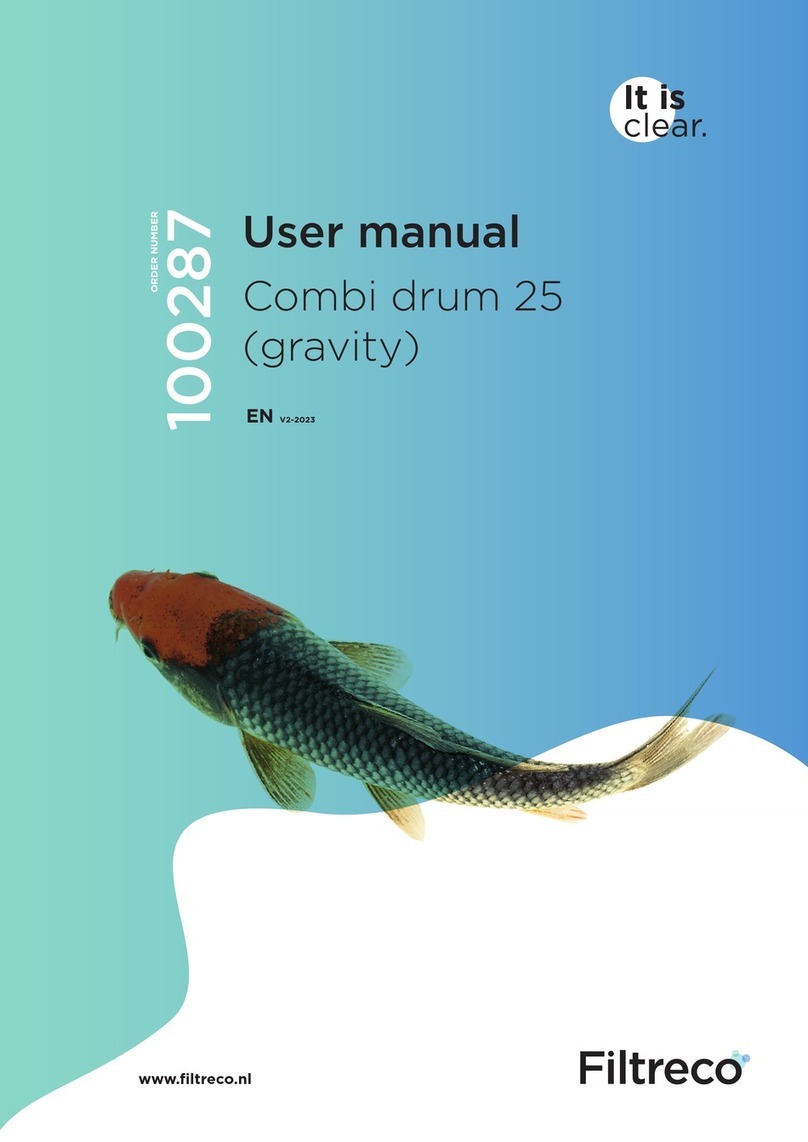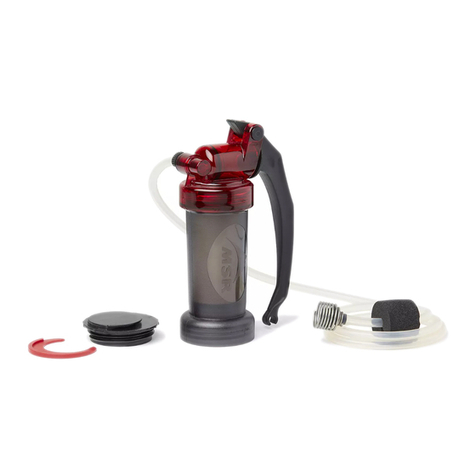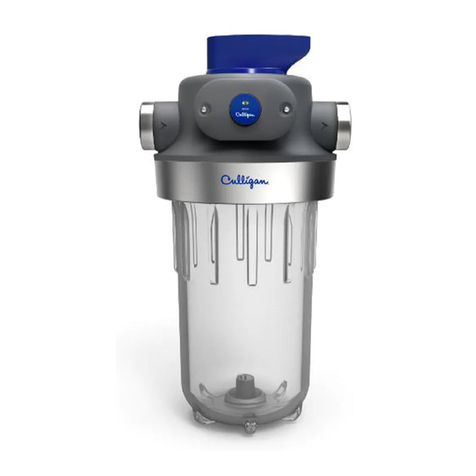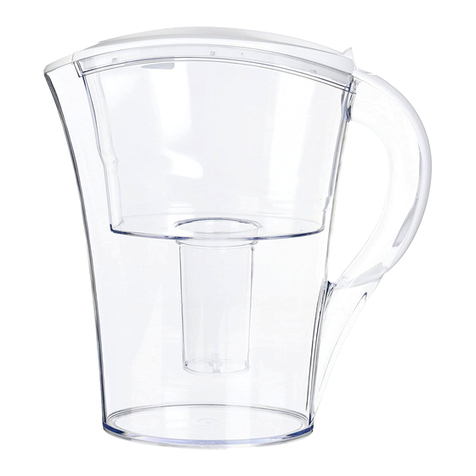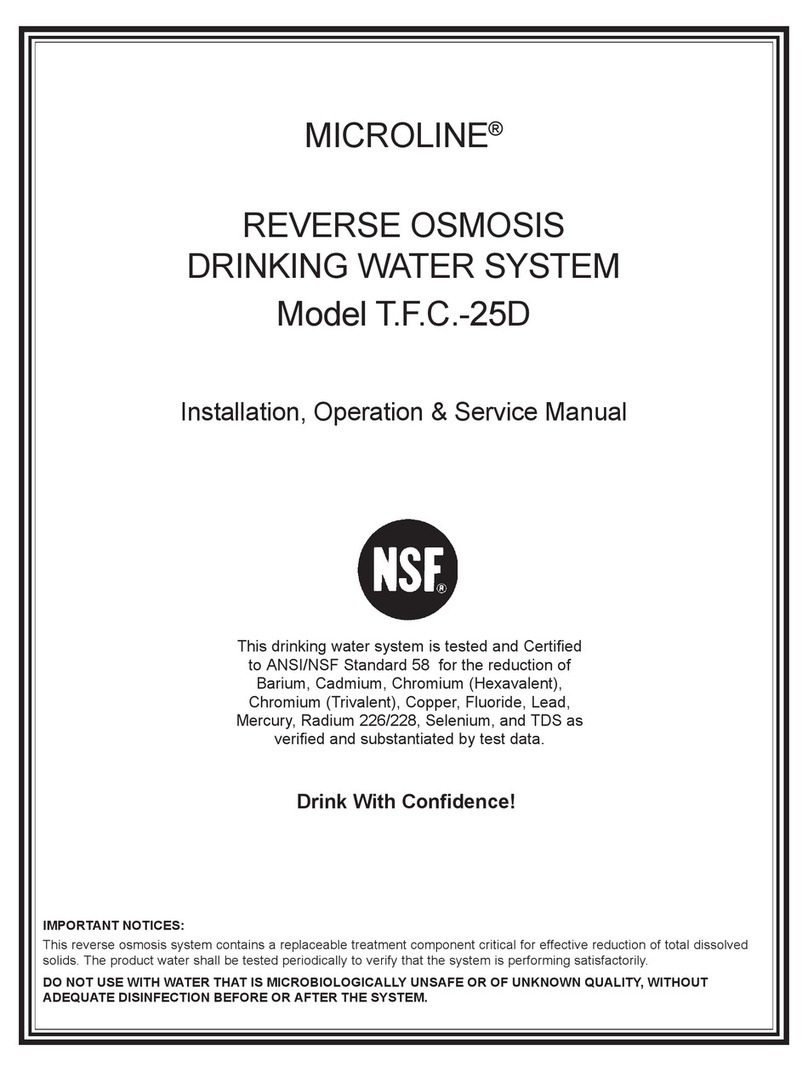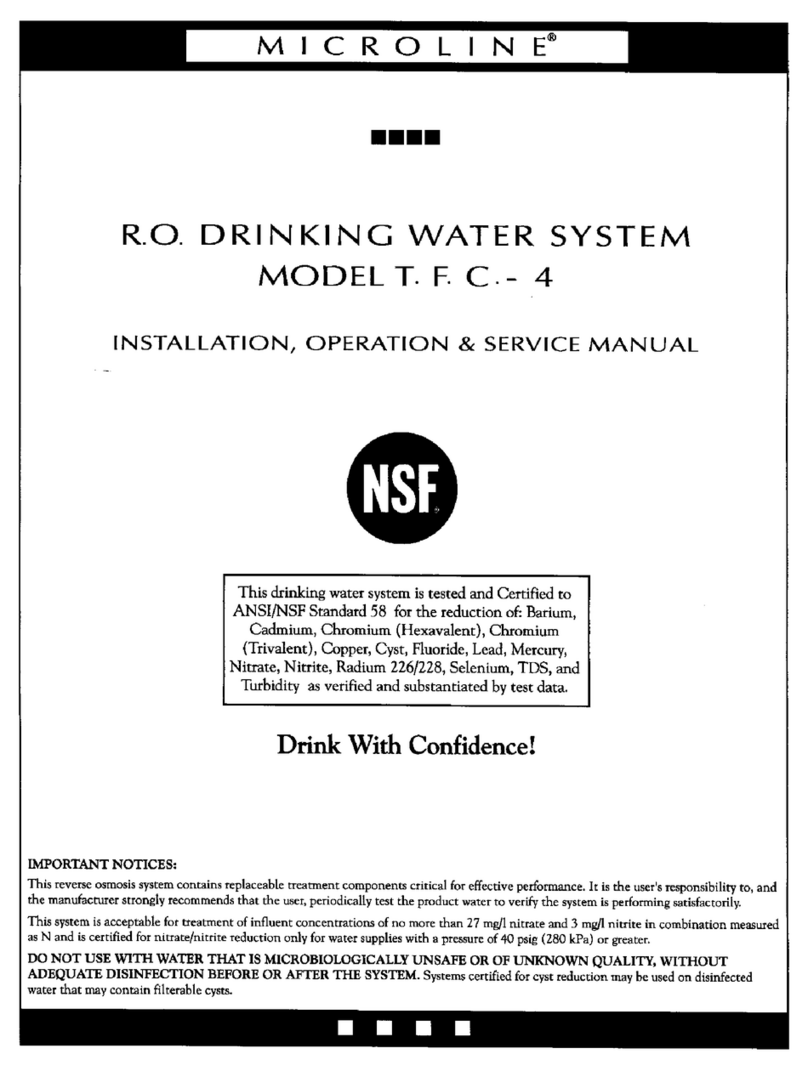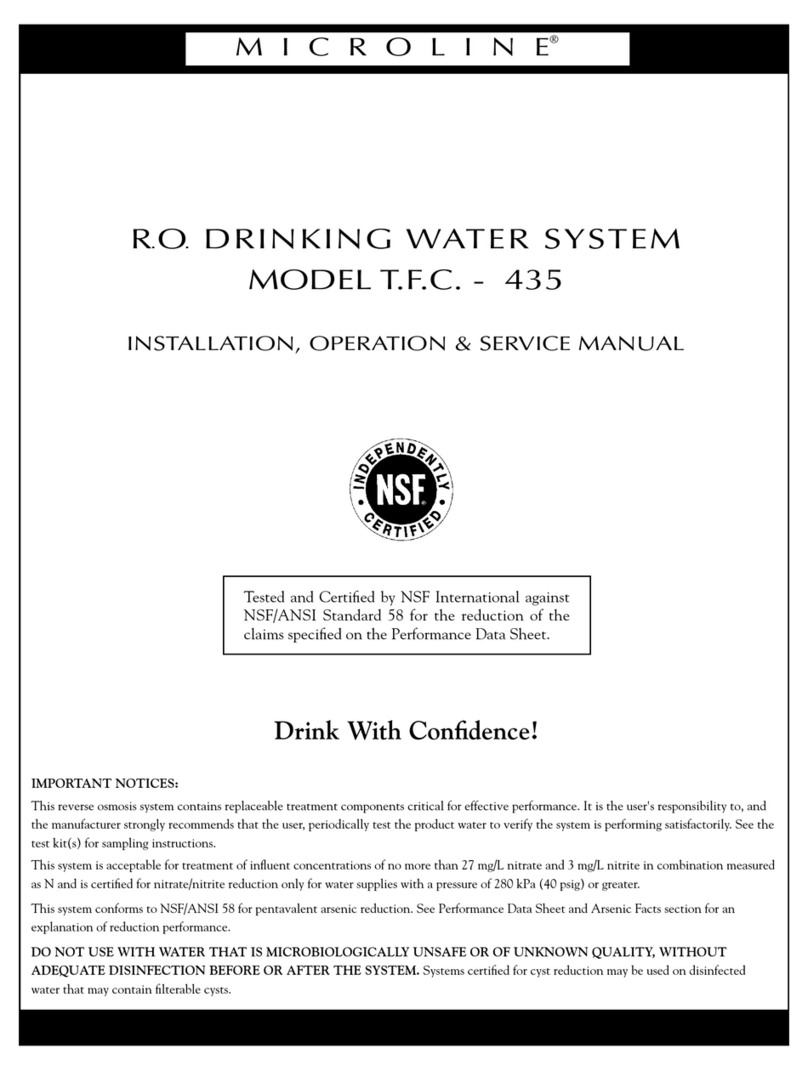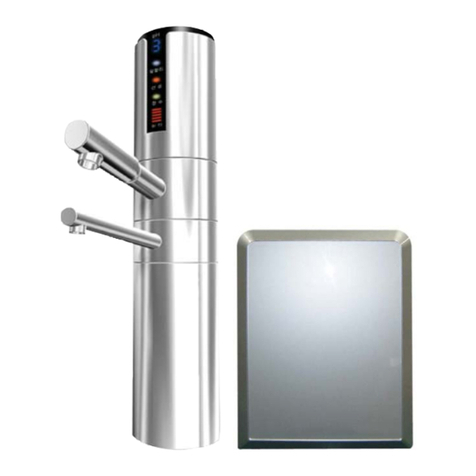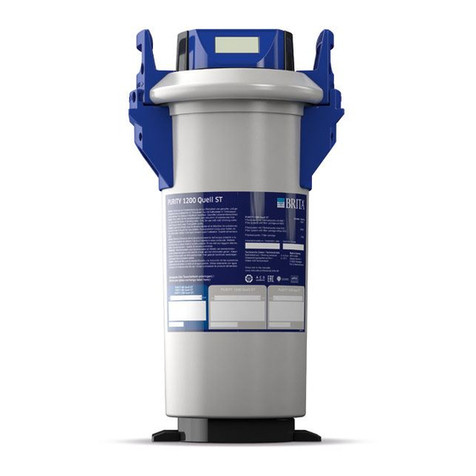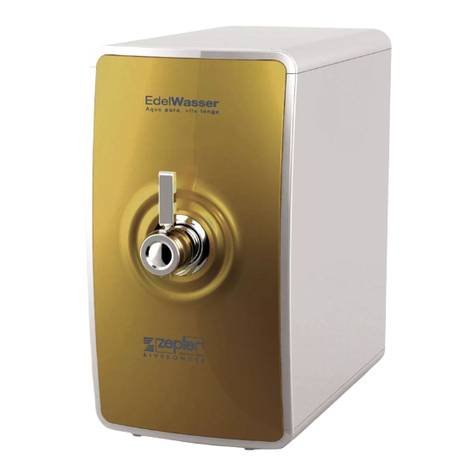
10
2. Use a battery powered or properly grounded
drill. Using the Clamp port as a drill guide,
drill a 7/32" hole through the wall of the drain
pipe. Do NOT penetrate the opposite side of
the pipe.
3. Locate the 3/8" Black Drain Tubing connected
to the Dispensing Faucet. Route the tubing to
the Drain Clamp and trim to length.
NOTE: When cutting the polytubing make
clean, square cuts, failing to do so could result
in poor connections and possible leaks.
CAUTION: The lowest point of the line
should be the point of connection to the Drain
Clamp. There should be no sag in the line as
this may cause excessive noise as the reject
water is flowing to drain.
•Refer to Fig. 4. Insert the tubing into the
Drain Clamp. Make sure the tubing is pressed
all the way in to create a pressure-tight
connection.
NOTE: If you want to pull the tubing out for
some reason, push the ring around the tubing
in and pull the tubing out.
D. R.O. Manifold Assembly Instructions
Locate the site per Sec. III, C.3. Various
installation sites will require different types of
mounting fasteners; be sure the fastener selected
will provide a firm, solid mounting. A support
panel may be necessary on thin cabinet walls or
to span between wall studs on particleboard or
drywall.
Do not drill through exterior cabinet walls or
leave sharp wood screw points exposed in readily
accessible cabinet interiors.
The close proximity of a dishwasher or a trash
compactor may require special fabrication of a
mounting plate.
1. The mounting bracket will accept either
#10 or #12 (5mm) mounting screws spaced
on 6" (15 cm) centers. Allow at least 4" (10
cm) of clearance beneath the filter housings
to accommodate filter changes. Mark the
two locations (the bracket can be used as a
template). Install the screws and tighten them
until the heads are about 5/8" from the wall.
2. Locate the ¼" Red Feed Water Tubing.
Remove the red plug from the fitting labelled
“In” on the manifold and insert the tubing.
Reference the special supplement sheet in
the carton for proper connection of all tubing
and removal of plugs. Run the tubing along its
course to the Feed Water Saddle Valve, trim to
length. (Refer to Fig. 1.)
Refer to Fig. 3. To the end of the red polytube
install the Compression Nut, the Plastic
Ferrule, and the Insert. Connect to the Feed
Water Saddle Valve.
3. Locate the ¼" Black Drain Tubing. Remove
the black plug from the fitting labelled “Drain”
on the manifold and insert the tubing. The
end of the Black Drain Tubing that should be
inserted into the “Drain” port will have a green
drain restrictor in it. Run the tubing along its
course to the ¼" Hose Barb on the Dispensing
Faucet, trim to length and connect by firmly
pressing over the barb. Allow the tubing to
relax, then press firmly again to insure proper
seating.
4. Locate the ¼" yellow tubing with the tee
attached to one end. Remove the yellow plug
from the fitting labelled "Out" on the manifold
and insert the tubing.
5. Locate the 3/8" Blue Product Water Tubing.
Firmly press one end into the tee and the other
end into the faucet connector. (Refer to Fig.
1.) The fittings will grab the tubing and seal it
in place. Make sure the tubing is pressed all the
way in to create a pressure tight connection.
NOTE: If you want to pull the tubing out for
some reason, push the ring around the tubing
in and pull the tubing out.
6. Hang the Manifold Assembly on the
mounting screws and tighten. DO NOT
OVERTIGHTEN.
7. Remove the wrapping from the
In–Line Activated Carbon Post Filter. Slice
the 3/8" Blue Polytube where it would be
convenient to install and change the In–Line
Filter. Make a clean straight cut to insure
proper connections. The “Out” port on the
In–Line Filter should be toward the faucet.
Firmly press in the tubing. The fittings will
grab the tubing and seal it in place. Make sure
the tubing is pressed all the way in to create a
pressure tight connection.
E. Position the Drinking Water Holding Tank and
Make the Final Hose Connections.
1. Check the tank precharge pressure. Make sure
it is between 5 to 7 psig. If not, use a bicycle
hand pump or other pump to bring the pressure
up to the 5 to 7 psig range.





















